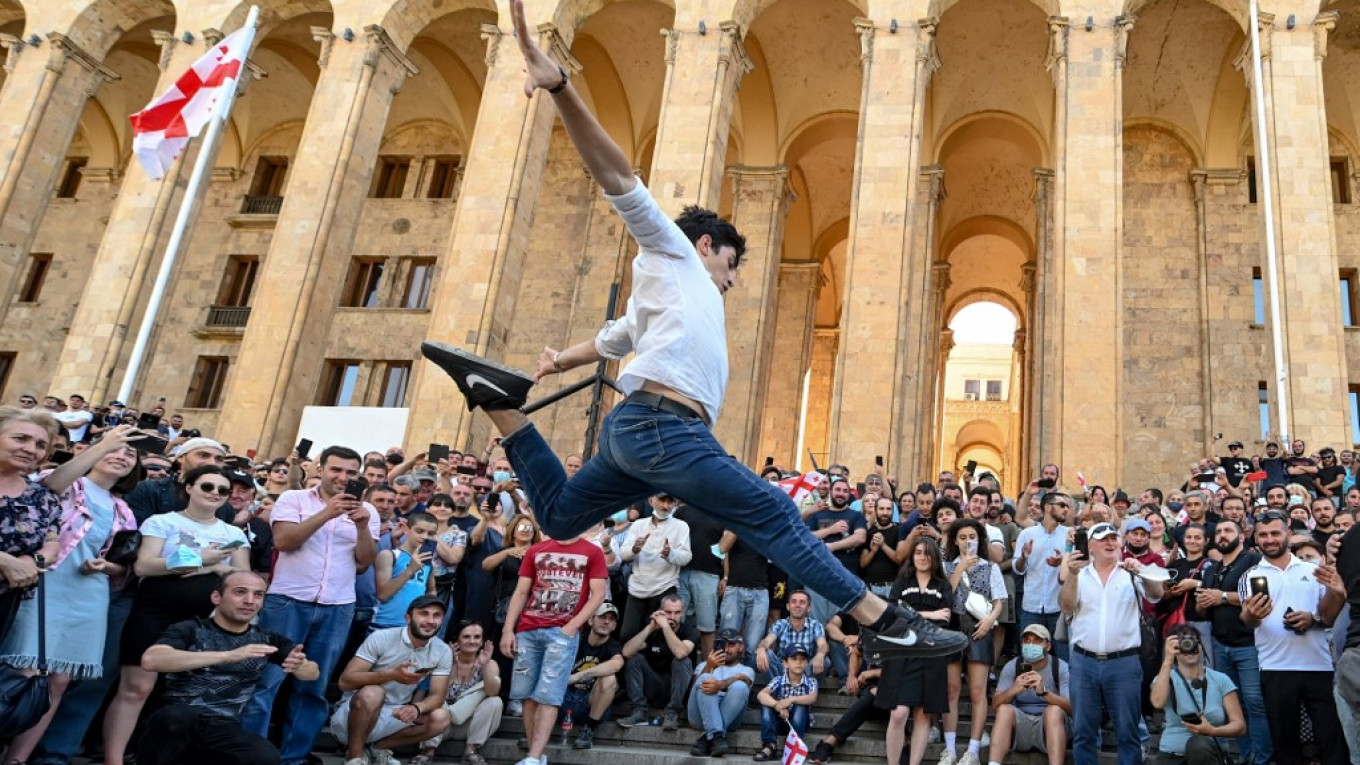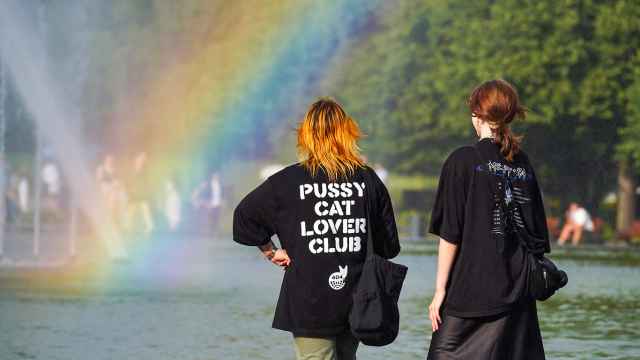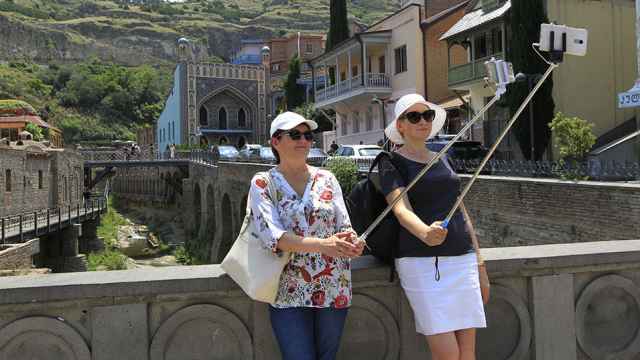LGBTQ activists in Georgia said Monday they had been forced to cancel a planned Pride march after opponents clashed with activists and police and the prime minister spoke out against the event.
Pride events are still controversial in Georgia, a conservative country where the powerful Orthodox Church has previously clashed with Western-leaning governments over progressive social issues.
Hundreds of protesters took to the streets of Georgia's capital Tbilisi against a Pride march that was scheduled for Monday evening.
They clashed with police and assaulted journalists at several locations, including outside parliament and the United Nations representative office to Georgia, footage from the Mtavari television network showed.
"We cannot risk human lives and take to the streets, which are full of violent attackers," organizers said in a statement on Facebook, announcing that "the march will not be held today."
Their statement added that the offices of the Tbilisi Pride organization were also raided by "homophobic attackers."
Prime Minister Irakli Garibashvili had earlier on Monday spoken out against the march, describing it as "unacceptable for a large segment of Georgian society."
The "holding of the so-called Pride march is not reasonable as it creates the threat of civil confrontation," Garibashvili told a cabinet meeting.
He also accused opposition parties and exiled ex-president Mikheil Saakashvili of attempting to provoke civil unrest.
"The opposition headed by Saakashvili is behind the Pride march, which is aimed at provoking civil confrontation and turmoil."
'Growing solidarity'
Critics have accused the ruling Georgian Dream party government of tacitly supporting homophobic and nationalist groups.
Those organizations are seen as supporters of the ruling party and have staged protests against pro-Western opposition parties.
Pride organizers denounced Garibashvili's "shameful" statement, saying it encouraged homophobic sentiments and accused his government of failing to "protect fundamental human rights."
The Orthodox Church had called on supporters to gather Monday afternoon for a public prayer against the Pride march.
The U.S. and EU diplomatic missions in Georgia, as well as the embassies of 16 more countries, issued a joint statement last week urging the Georgian government "to secure the right to peaceful assembly for all people in Georgia without exception."
Twenty-eight members of the European Parliament called on Georgian authorities in a letter last week to ensure Pride marchers the "right to freedom of expression and peaceful assembly."
Georgian society is slowly becoming increasingly accepting of liberal social views in recent years and has hosted several Pride events.
"We feel growing solidarity from Georgian society and from politicians, but there are still violent homophobic groups," the Pride organizer, Giorgi Tabagari, told AFP.
In 2019, hundreds of far-right activists burned rainbow flags in Tbilisi, protesting against the screening of an Oscar-nominated gay-themed film.
In 2013, thousands of ultra-conservative supporters of the Orthodox church disrupted a Tbilisi rally to mark International Day Against Homophobia.
Activists had to board buses provided by police to escape the mob, which charged after them across the capital's main square, hurling stones, breaking windows and threatening to kill them.
The next day, thousands of Georgians signed an online petition demanding those behind the violent attack be prosecuted.
Georgia decriminalized homosexuality in 2000, and anti-discrimination laws were adopted in 2006 and 2014.
A Message from The Moscow Times:
Dear readers,
We are facing unprecedented challenges. Russia's Prosecutor General's Office has designated The Moscow Times as an "undesirable" organization, criminalizing our work and putting our staff at risk of prosecution. This follows our earlier unjust labeling as a "foreign agent."
These actions are direct attempts to silence independent journalism in Russia. The authorities claim our work "discredits the decisions of the Russian leadership." We see things differently: we strive to provide accurate, unbiased reporting on Russia.
We, the journalists of The Moscow Times, refuse to be silenced. But to continue our work, we need your help.
Your support, no matter how small, makes a world of difference. If you can, please support us monthly starting from just $2. It's quick to set up, and every contribution makes a significant impact.
By supporting The Moscow Times, you're defending open, independent journalism in the face of repression. Thank you for standing with us.
Remind me later.






